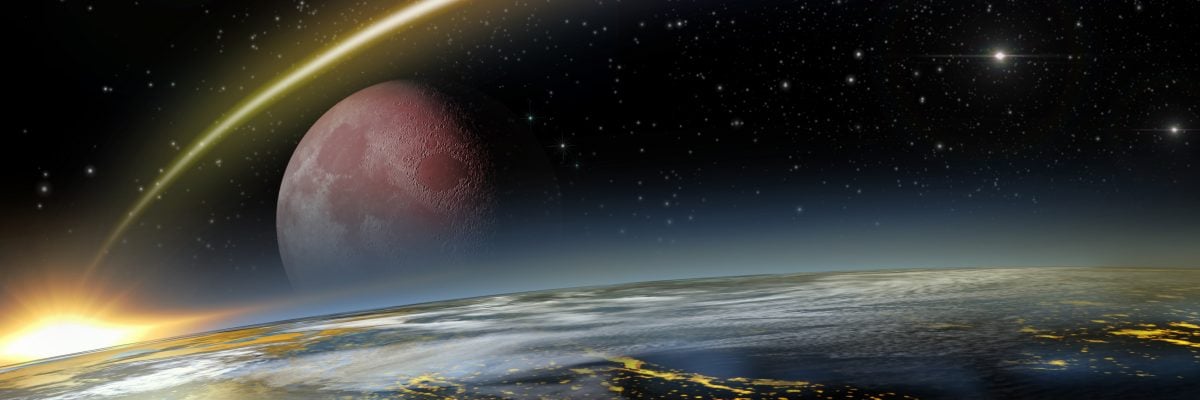
Homily for the First Sunday of Advent, Year C
Jesus said to his disciples:
“There will be signs in the sun, the moon, and the stars,
and on earth nations will be in dismay,
perplexed by the roaring of the sea and the waves.
People will die of fright
in anticipation of what is coming upon the world,
for the powers of the heavens will be shaken.
And then they will see the Son of Man
coming in a cloud with power and great glory.
But when these signs begin to happen,
stand erect and raise your heads
because your redemption is at hand.
“Beware that your hearts do not become drowsy
from carousing and drunkenness
and the anxieties of daily life,
and that day catch you by surprise like a trap.
For that day will assault everyone
who lives on the face of the earth.
Be vigilant at all times
and pray that you have the strength
to escape the tribulations that are imminent
and to stand before the Son of Man.”
— Luke 21:25-28, 34-36
Well, Merry Christmas! How is it that the Church chooses such dire readings to begin what modern liturgists call a period of “joyful expectation” of the birth of the infant Savior? I mean, dying of fright is not exactly a thought that occurs to us as related to the expectation of Christmas!
Let us consider this, though. When the angel Gabriel appeared to Mary, he said, “Fear not!” and when the shepherds saw the angelic hosts over the fields of Bethlehem, we are told, they were “sore afraid.” And the angels had to tell them not to be.
Fear is an emotion, which means it is a bodily reaction that follows on a perception of the senses. Mere animals have fear, and insofar as we have a bodily nature we humans also experience fear. In its simplest form, it is the result of not knowing what is the cause of something. In other words, it is the emotion of wonder.
A sunset, a night breeze, a summer storm… wonder is the sweet side of fear. It is the expectation of a chaste bridegroom on his wedding night, or the bride who has never known a man. Sorry if your homilist is so frank, but there it is.
Fear is actually a lovely emotion. It shows that we recognize that we are small and God and his universe are big. There are many things we do not understand. Indeed, there are most things that we do not understand.
Revelation tells us of the truths that we could never have reached without the assistance of divine grace. It is the evidence of a divine love for us that exceeds the measure of our minds. Consequently, that which God’s revelation offers us is a cause of wonder at something we cannot fully take in: a cause of a holy fear.
In his love for us, God has revealed himself and made promises to us that we can never comprehend in this life or the next. The end of the world and the disappearance of the natural world as we understand it are pretty easy to imagine in comparison with the stable and eternal truths that last forever and are greater even than the heavens and the earth..
We should not fear the passing away of heaven and earth. The Savior told us that heaven and earth will pass away, but that his words will not pass away. What is really awesome, fearsome, beyond our ken, is rather our own fate as sons and daughters of God. He has given us a share in his divine life and is not hesitant to “scare” us into realizing that everything we see around us is a nothing to him in comparison to our own immortal souls and our bodies destined for a glorious resurrection.
Thus we will be able to see that we are sharers in the same fate as the baby Jesus for whose birth we are preparing. Someday to be remade completely in the glory of the world to come!
He is the King who is to come: come, let us adore him in holy fear!



